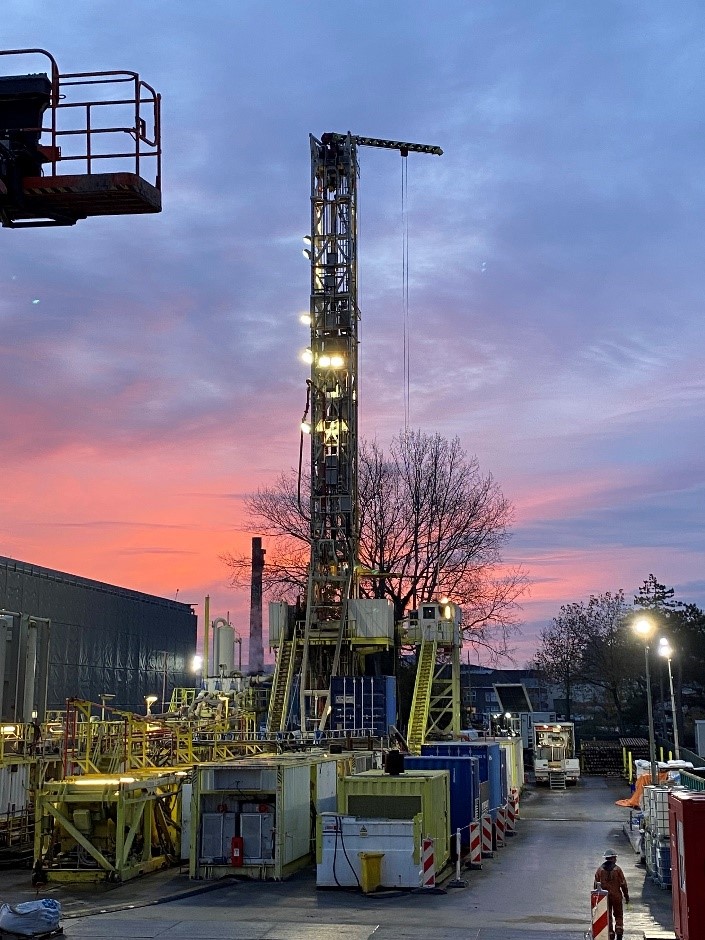Geothermal heat source drilling completed
The drilling phase for the geothermal heat source on our campus has been successfully completed. Two wells have been drilled in recent months – the injection well and the production well. This involved drilling to a depth of no less than 2,580 metres. The doublet – as the two wells are jointly referred to – shows promising heat production properties.
Once the drilling site has been reconfigured, we will be entering a new phase. This new phase will involve decision-making and the construction of the above-ground plant needed to supply heat to TU Delft's heat network. In the near future, Netverder will work on the decision-making and construction of the city's heat grid, thereby enabling the city to be connected to the source as well.
Leeghwaterstraat to reopen in the New Year
The drilling installation is now being dismantled and its components disposed of. During the next few weeks, the construction site on Leeghwaterstraat will also be gradually cleared, and the street will be reopened in the New Year. However, the parking spaces on and around the current building site will not return, in line with TU Delft's new parking and mobility policy. They will be replaced in part by areas of greenery; there will also possibly be a temporary facility for testing activities of the 3mE faculty.
Drilling phase valuable for knowledge development
The geothermal project on the campus is linked to a major research programme at the CEG faculty. Research is being conducted into how geothermal energy can be upscaled safely and responsibly as a clean source of energy. The intention is that future geothermal projects elsewhere in the country can benefit from the findings. After completion of the drilling, 80 subsurface samples were taken, allowing valuable data on the nature of the subsurface to be collected. Extensive scientific research will also take place during the subsequent phases of the project, including using optical fibres to monitor data on temperature, pressure, seismicity and voltage around the two wells.
More info can be found on the research website: https://www.tudelft.nl/citg/over-faculteit/afdelingen/geoscience-engineering/research/geothermal/geothermal-science-and-engineering/research/campus-geothermal-project/geothermal-data-acquisition
